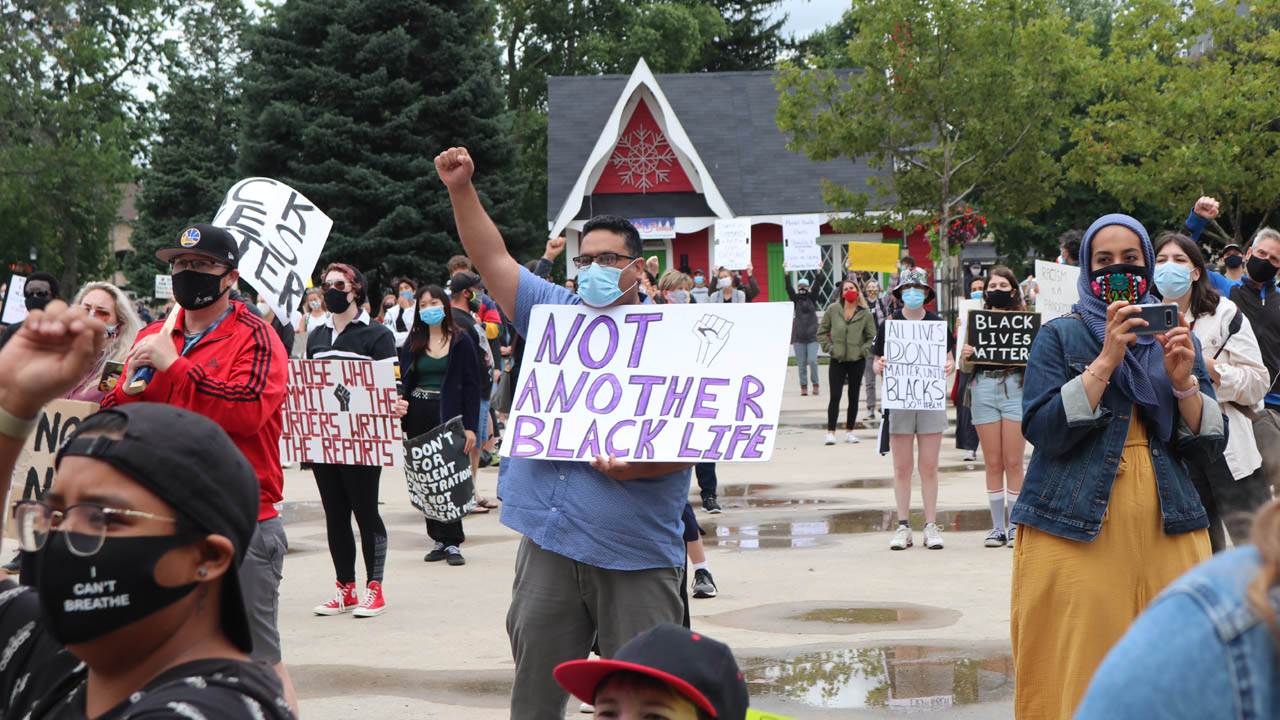Black Lives Matter London responds to proposed police budget increase
 CREDIT: FSU PUBLICATIONS DEPARTMENT
CREDIT: FSU PUBLICATIONS DEPARTMENTThe advocacy group supports London investing more into mental health services than into more police.
London Police are proposing a budget increase of 30 per cent over the next four years.
During a budget presentation to the City’s Police Services Board on Oct. 30, Police Chief Thai Truong said that London is the province’s third most dangerous city and has one of the most understaffed police forces. In an effort to combat this, Truong’s proposed police budget for 2024-2027 includes recommendations for adding 189 new positions, including 97 police officers and 92 civilian workers. The proposed budget also aims to improve response times, provide better equipment and vehicles to officers, modernize police technologies, and establish a next-generation 911 reporting centre and joint training campus with the London Fire Department.
The cost breakdown by year is as follows:
- $146,642,726 in 2024
- $157,876,861 in 2025
- $163,917,567 in 2026
- $171,129,651 in 2027
Hamdun questioned Truong’s suggestion that London is the third most dangerous city in Ontario.
“When we look at this issue, we have to look at the root cause of crime in the first place: socioeconomic status, race, homelessness, and no access to community-based resources,” Hamdun said. “All of that is the root cause of crime.”
“A lot of crime stems from necessity, from the need to eat or survive or whatnot,” said Hamzah Elhafdaoui, a student at New Jersey Institute of Technology and involved in Black Lives Matter. “So, social, and mental health services are two crucial things we should invest in more than the police.”
The national average for the Crime Severity Index (CSI) was 78.1 per cent in the previous year. The CSI is a yearly measure utilized in Canada to track the variations in crime severity. This index assigns weight to each crime based on the seriousness of the sentence given by courts in each province and territory. Such an approach helps to evaluate the severity of different crimes accurately. The CSI for London was 79.7 per cent in 2022, higher than the provincial average of 58.5 per cent. Sudbury (82.8 per cent) and Windsor (83.8 per cent) had higher CSI scores than London. Despite being number one on the CSI, Windsor had the most authorized police officers per 100,000 residents. According to Statistics Canada, last year, 603 officers served 434,099 Londoners, a ratio of 147.2 officers per 100,000 citizens. However, London had one of the top five most significant decreases in the CSI (dropping by eight per cent) by Canada’s Census Metropolitan Areas (CMA) in 2022.
Hamdun said she was aware of what the London Police had stated in their presentation and acknowledged the department’s staffing issues. However, she does not believe more officers are the solution.
“I thought about what the police officers said. They acted as social workers and needed more employees because they had many calls. If you were investing in the community, social work, and intervention community, this wouldn’t happen. But if people feel that their only hope is to call the police, the lines will be busy because there is no one to call,” said Hamdun.
“The money could be invested in mental health response teams instead of the police responding,” added Elhafdaoui. “A lot of times, when the police show up to a mental health crisis, it ends up in violence, which doesn’t help anybody at the end of the day or ends up with them in jail, which also doesn’t help anybody. They’re going to come out, and they’re still going to be mentally ill.”
The budget will be presented to London City Council on Dec. 12. Londoners can give feedback until the end of January before a final decision in early 2024.















